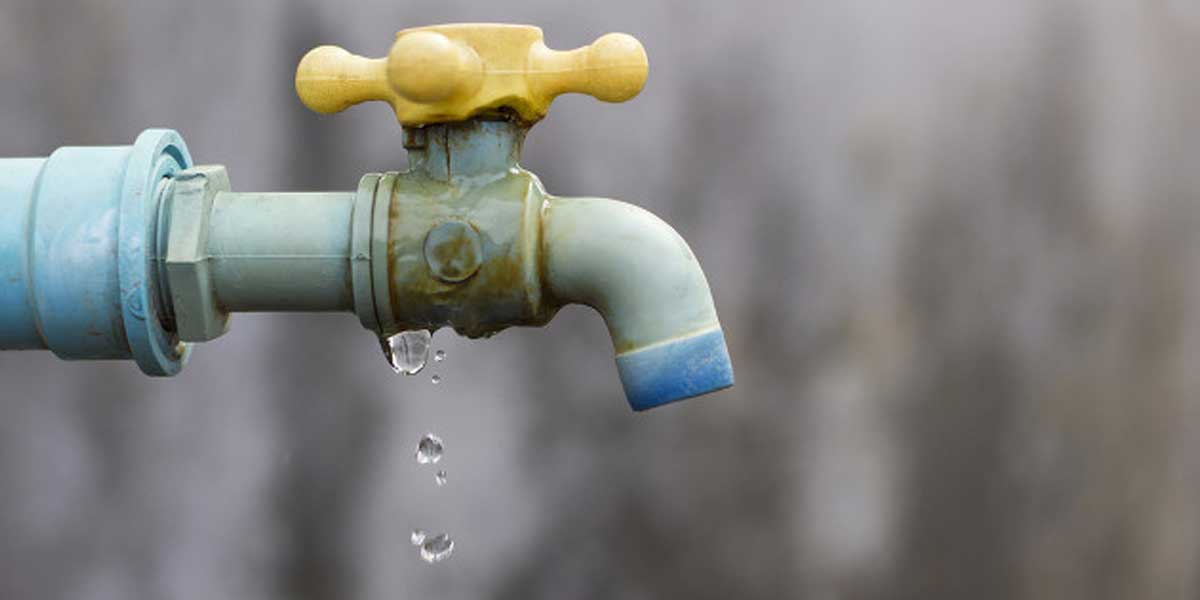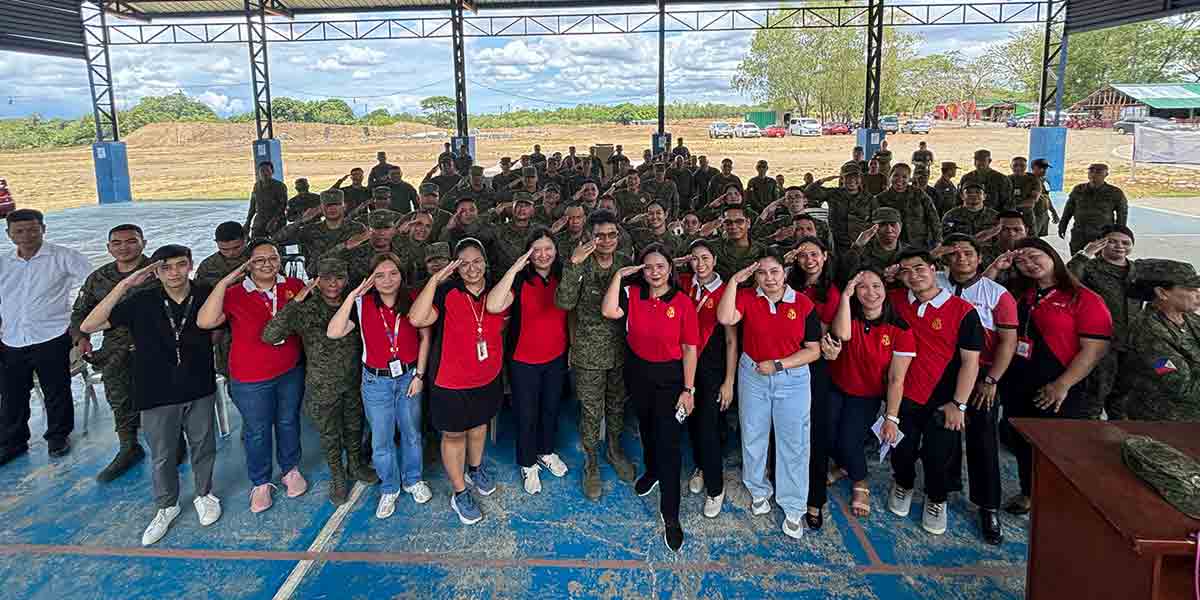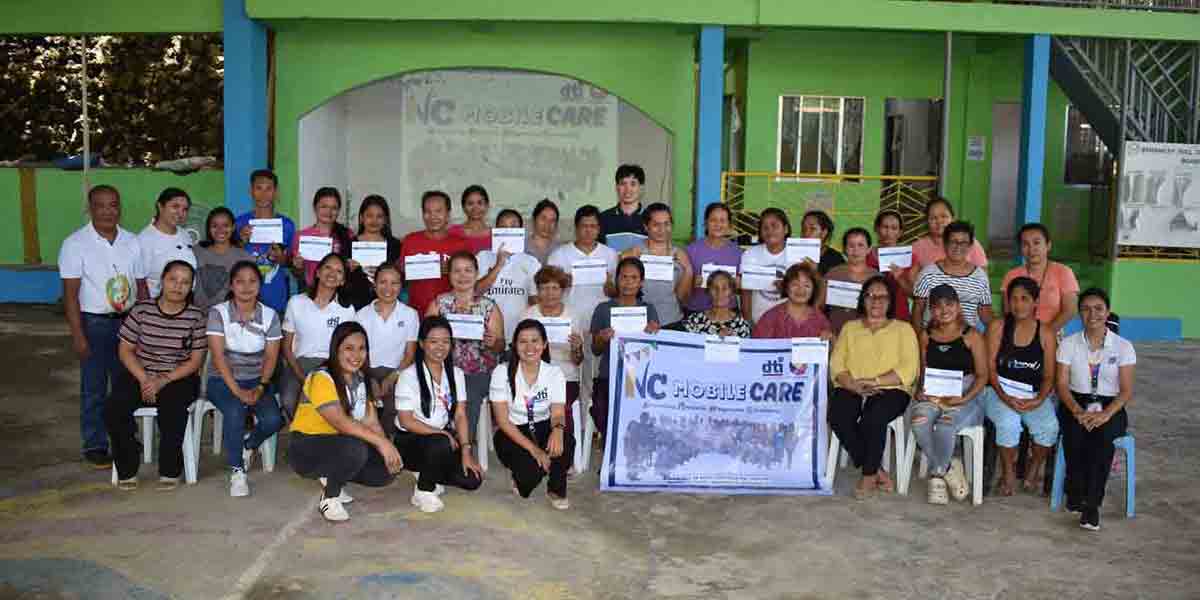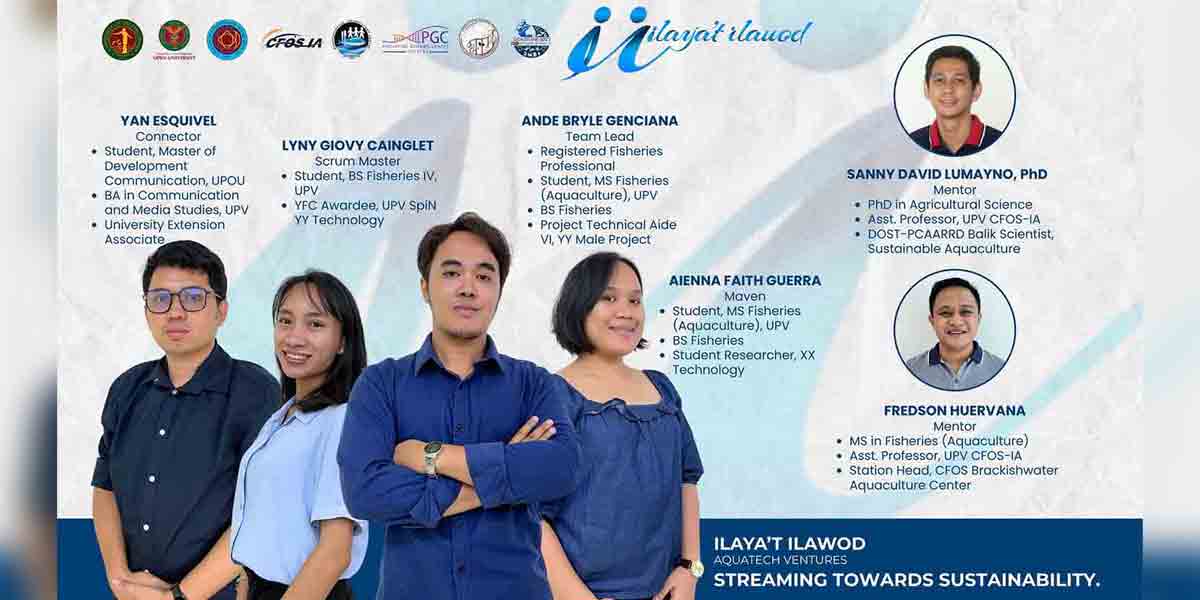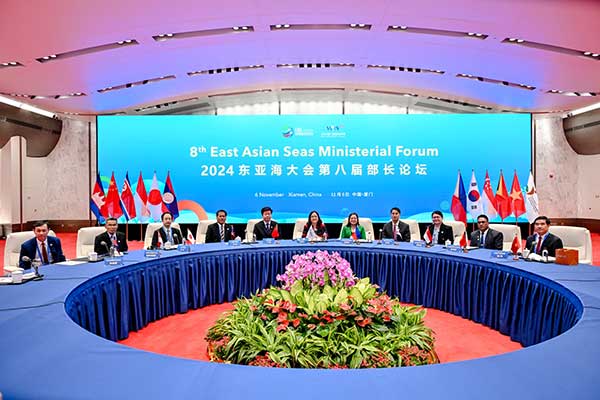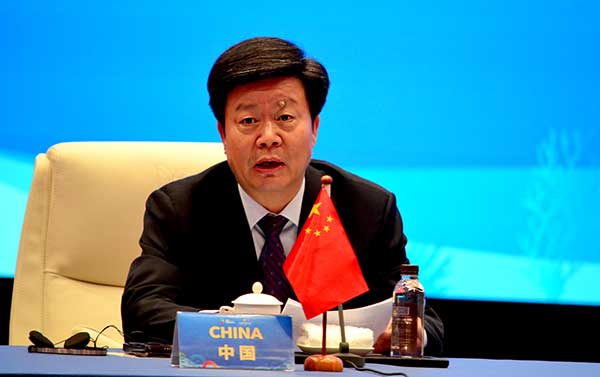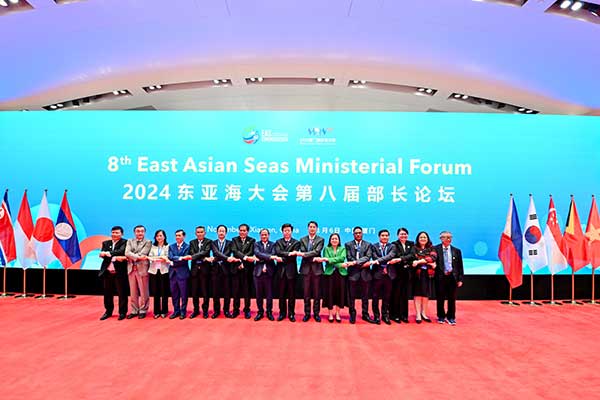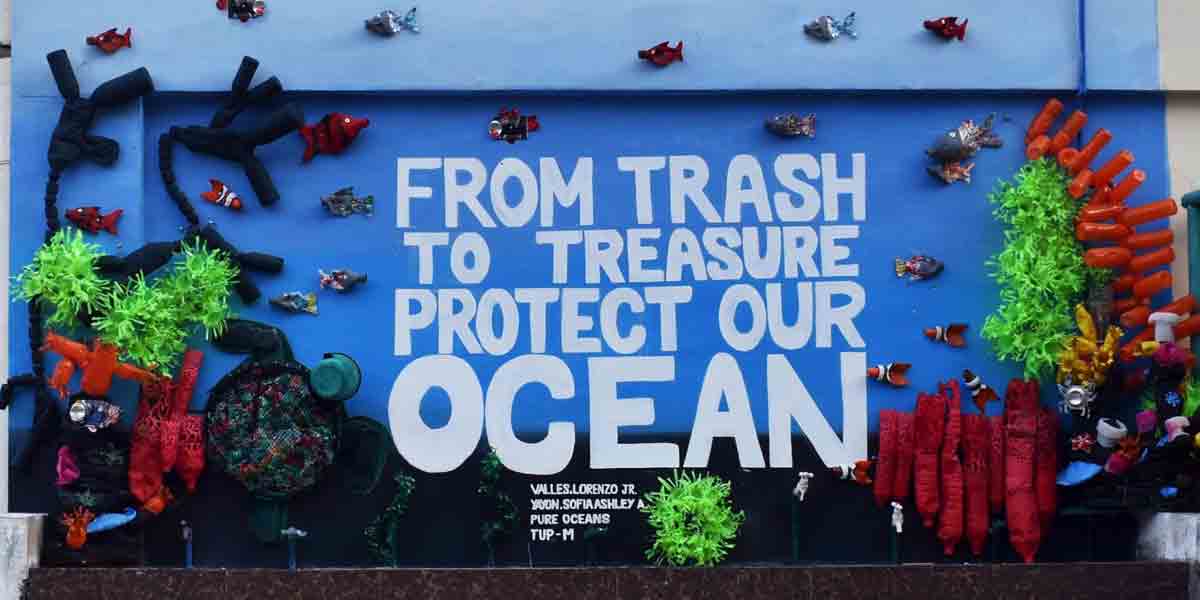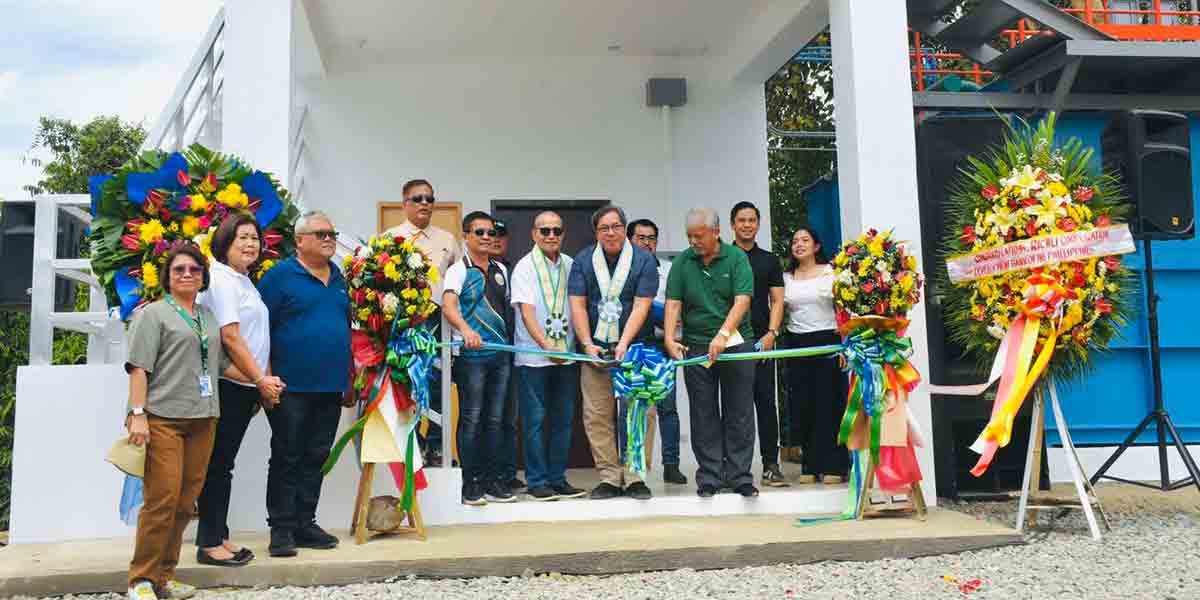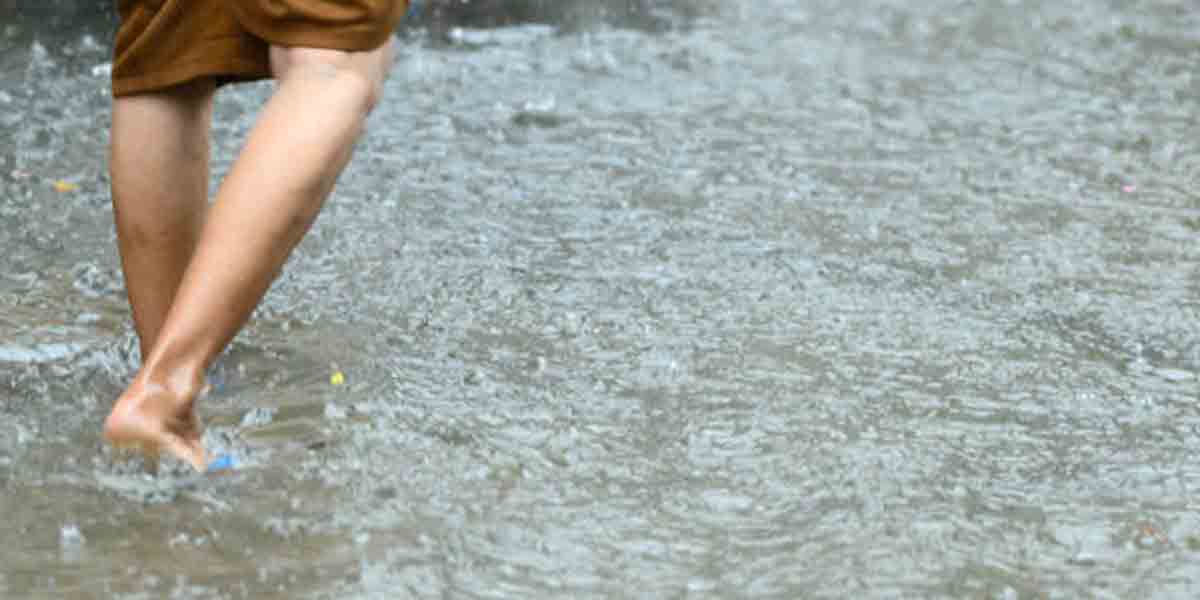XIAMEN, PEOPLE’S REPUBLIC OF CHINA – High-level representatives from 10 country partners of the Partnerships in Environmental Management for the Seas of East Asia (PEMSEA) reaffirmed commitments and discussed the best ways for East Asian countries to embrace sustainable development during the 8th East Asian Seas (EAS) Congress Ministerial Forum, held at the Xiamen International Convention Center on 6 November 2024.
Observed every three years as part of the PEMSEA-led EAS Congress, the Ministerial Forum provides a platform for nations to share their plans to both conserve and sustainably develop the shared resources of East Asian seas and coasts.
With country delegations led by Cambodia’s Paris Chuop, China’s Sun Shuxian, Indonesia’s Dasrul Chaniago, Japan’s Toru Ono, Lao PDR’s Chanthanet Boualapha, the Philippines’ Donalyn Minimo, the Republic of Korea’s Yoon Hyunsoo, Singapore’s Rena Lee, Timor-Leste’s Domingos da Conceicao dos Santos and Viet Nam’s Nguyen Duc Toan, the Ministerial Forum hopes to address the region’s persistent and emerging challenges.
Representatives shared their country contributions to the Strategic Development Strategy for the Seas of East Asia (SDS-SEA), a blueprint that provides policy directions and concrete commitments to shape the medium and long-term development of East Asian Seas.
Each delegation shared how their nations also aligned their respective national priorities generated from previous ministerial declarations and global commitments.
“There are varied conservation solutions, with each country offering its own unique array,” shares Toru Ono from Japan’s Ministry of Land, Infrastructure, Transport and Tourism. “Our country for instance has vast seagrass beds and mangrove forests – vital blue carbon ecosystems needed to stop climate change and to achieve our national goal of carbon neutrality by 2050.”
Anchored on a 10-point agenda organized under four Synergistic Actions, the Ministerial Forum tackled effective governance, a resilient ocean, sustainable, inclusive and resilient economies, plus healthy people. Key priorities include fostering inclusive multi-stakeholder engagement, science-policy interface, technological innovations, plus blue financing and investments.
“Blue finance is essential for growth,” shares Dasrul Chaniago from Indonesia’s Ministry of Environment and Forestry. “We are the world’s largest archipelago, so embracing the blue economy can improve the welfare of our people. The average annual investment required for the sustainable development of our marine, maritime and fisheries sectors is IDR 3.64 trillion, but we might eventually need many times that.”
Delegates engaged in productive dialogue centered on the sharing of best practices, new initiatives, opportunities, perspectives and technologies to enhance the management of East Asian Seas. “Technology is important. We are focusing on digital technology such as marine climate observation networks and are developing smarter ways to generate renewable energy from the sea via tidal and wave power,” shared Yoon Hyunsoo from the Republic of Korea’s Ministry of Oceans and Fisheries.
“We warmly welcome assistance from other countries to further build our capacity,” added Paris Chuop from Cambodia’s Ministry of Environment. “We should all cooperate because no single country owns the vastness of the ocean.”
“We support lasting prosperity and will continue to promote the SDS-SEA to forge deeper cooperation for even more beautiful, shared and productive East Asian Seas,” added Sun Shuxian from China’s Ministry of Natural Resources, one of the organizers of the event.
The Ministerial Forum concluded with nations reaffirming their commitments to work as one in developing the shared Seas of East Asia. “Past declarations have tackled global ocean commitments to promote sustainable ocean development, climate resilience, healthy biodiversity, sustainable financing and a blue economy with sectoral targets,” explains PEMSEA Executive Director Aimee Gonzales. “However, achieving these interlinked objectives to secure UN SDG 2030 and 30×30 targets requires accelerated progress through synergistic pathways that harness collective efforts and multiply impacts.”
Delegates afterwards visited Xiamen’s impressive Wuyuan Bay, which was transformed from a salt-drying site and waste dump into a thriving bastion of wildlife, hosting nearly 90 species of birds including what many Chinese consider the country’s most beautiful bird – the Blue-tailed Bee-eater (Merops philippinus) – plus charismatic cetaceans like the White Dolphin (Sousa chinensis). A popular site for cruise tours, fishing, sailing and yachting, Wuyuan Bay has become a shining example of restorative development.
Happening from 6 to 8 November 2024, the 8th EASC is co-organized by PEMSEA, the Ministry of Natural Resources of China and the Xiamen Municipal People’s Government. Over 800 delegates from 20 countries are attending the three-day event, which is being staged together with World Ocean Week in Xiamen (WOW), which will extend until 12 November. Top ocean and coastal managers, plus policy experts and advocates are attending to strengthen regional collaboration across East Asia.
“By aligning efforts with the SDS-SEA, countries can foster effective ocean governance to secure healthy seas, people and economies by 2030,” concludes EAS Partnership Council Chair Dr. Vann Monyneath. The next East Asian Congress and Ministerial Forum will be scheduled in 2027.


